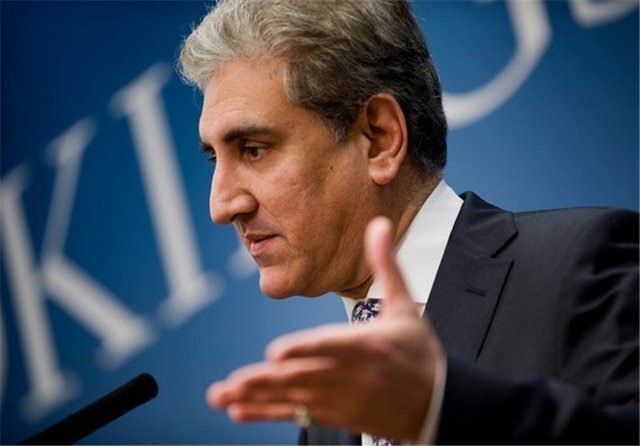Pakistani Foreign Minister Shah Mehmood Qureshi has said that Iran and Saudi Arabia should bridge differences.
In an interview with Aaj News, he said that Pakistan will continue efforts in line with reducing tension in Iran-Saudi Arabia relations, ISNA reported on Tuesday.
Pakistan’s Prime Minister Imran Khan visited Tehran on Sunday to “facilitate” possible dialogue between Iran and Saudi Arabia which have been at loggerheads over a number of issues including the Saudi war on Yemen.
He met with Leader of the Islamic Revolution Ayatollah Ali Khamenei and President Hassan Rouhani.
Khan was scheduled to visit Saudi Arabia on Tuesday.
The Pakistani prime minister visited Iran as the tension in the region is getting more complicated. On Friday morning, an Iranian oil tanker was struck by two missiles in the Red Sea, 60 miles away from Saudi coastlines.
Khan has said that he is making an effort to reduce tension between Tehran and Riyadh. Prior to the Sunday visit to Tehran, he held talks with Saudi Arabia’s leaders in Riyadh as well as Rouhani at the United Nations in September.
On Saturday, the Iranian Foreign Ministry said Tehran is ready for a talk with Saudi Arabia with or without a mediator.
During a joint press conference with Khan, Rouhani indirectly referred to Saudi Arabia by saying that Iran will give a positive response to “good intention”.
“Iran welcomes good intention and efforts by the Pakistani prime minister to settle tension in the region to restore peace and stability to the region,” he said.
During a separate meeting with Khan, Ayatollah Khamenei, Leader of the Islamic Revolution, said that ending the war in Yemen will have positive effects on the Middle East region.
“The Islamic Republic of Iran presented a four-point plan to end the war in Yemen a long time ago and if this war ends in the right way, it can have positive effects on the region,” the Leader said.
He described peace and security in West Asia as very “sensitive” and “important” and expressed regret over certain regional countries’ “destructive” role in supporting terrorist groups in Iraq and Syria and causing war and bloodshed in Yemen.
The Leader added, “We have no motivation for animosity with these countries, but they are influenced by the United States and act against the Islamic Republic of Iran in line with the United States’ will.”
Deputy Chairman of Parliament’s National Security and Foreign Policy Committee Kamal Dehghani Firouzabadi has said that there are promising signs in revitalizing ties between Tehran and Riyadh.
In an article published by IRNA on Monday, he said it seems that the future of relations has become more promising.
“We can point three signs in this respect. First is negotiations on Hajj [in August] which were held without impediment and reached maximum results. The second is direct talks between Iranian and Saudi oil ministers [in October] during which the officials called each other ‘friend’ despite the tension in past years…The third, and most important one, is Saudi Arabia’s call for mediation,” he wrote.
However, he said that there are still some “worries” and “concerns”.
“Undoubtedly, certain regional players, with the Israeli regime at the head of them, will never tolerate de-escalation. Even the United States can tale the same position as Israel because the continuation of tension in the Middle East will be a profitable market for Washington to sell weapons,” he opined.
Saudi Crown Prince Mohammed bin Salman said in an interview with CBS’s 60 Minutes program aired on September 29 that he preferred a peaceful resolution with Iran, describing it as “much better than the military” option.


No comments:
Post a Comment